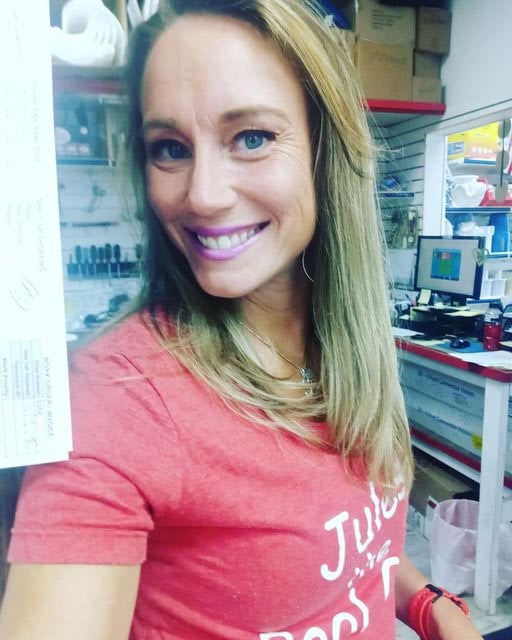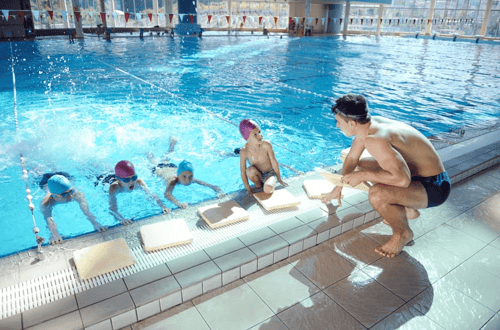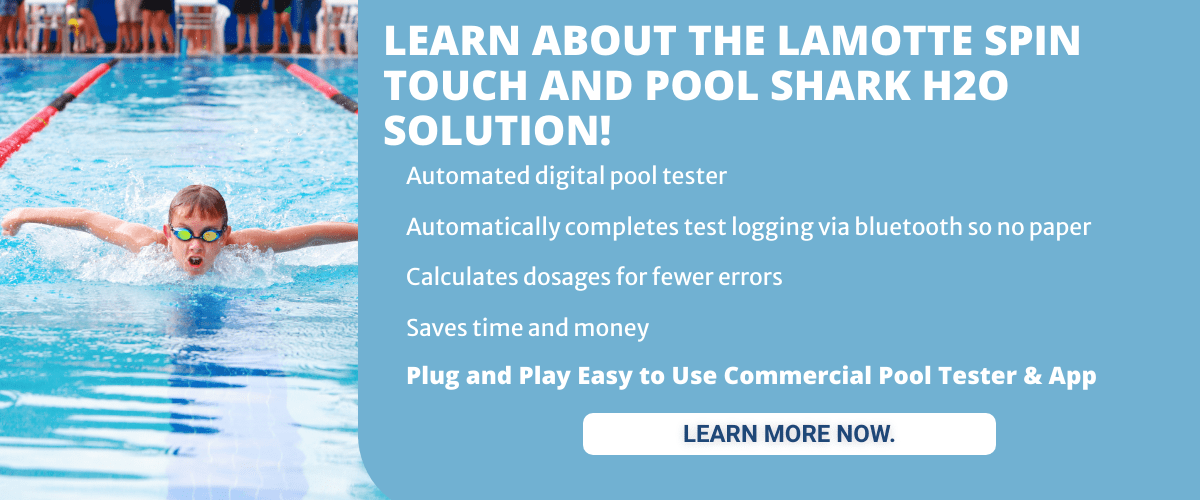We, as pool operators, take care of what are known as “Commercial” pools, spas, splash pads, and water parks. Just what makes them commercial? We know we have a lot to do to maintain these bodies of water. We have to keep them safe. That is our number one priority. We have to keep them compliant with local health department regulations. This includes things like safety equipment, proper signage, proper water chemistry, proper logging, etc. Let’s chat a little about what makes a pool a commercial pool and what things we have to do to maintain them.
Commercial Pools
A commercial pool is located not on residential property. Commercial pools are commonly referred to as “Public” pools due to their design and use. They are pools that serve a group. A commercial pool is any body of water intended for more than one household use. Types of commercial pools are waterparks, health clubs, community centers, camps, schools, and more! Commercial pools are built to be multi-functional and serve a broad population of swimmers. The different code requirements and building permits vary depending on the intended use of the body of water.
Commercial pools tend to be larger than a residential pool since they are built to accommodate more bathers. They are also usually deeper. Especially if they have a diving board or platform. Depending on the level of diving competitions being hosted, pools with a one-meter springboard (which are the most common) require a depth of 11 feet, 6 inches. Other minimum depths include:
3 meter springboards: 12 feet, 6 inches
5 meter springboards: 13 feet
10 meter diving platforms: 17 feet.
Other bodies of commercial pool water such as children’s pools have different accommodations. These bodies of water can be no deeper than 3 feet. Quite the opposite, huh? Competition swimming pools can be even more specific. For NCAA competitions the smallest is 25 yards. Semi-olympic pools require 21 x 25 meters, with a minimum depth of 1.2 meters and a maximum depth of 1.8 meters. They also require 8 lanes with a width of 2.5 meters. Olympic swimming pools require 50 x 20 meters with a minimum depth of 1.8-2.0 meters and a maximum depth 2.10 meters and a maximum depth of 2.10 meters. They have 8-10 lanes that are 2.5 meters wide.
Commercial pools typically cost more to operate and to build. We are probably all noticing the rise in chemicals which adds to the cost of maintaining our pools. Did you know commercial pools generally cost up to 2-3 times more per square foot than a residential pool? The ongoing maintenance, heating and electric costs are significantly higher in commercial pools.
The New Commercial Pools
If you rent out your home as an AirBnB, VRBO or Swimply…guess what? Your pool is now a commercial pool. With more and more people doing this now, the increase of risk goes up greatly to homeowners. Your homeowner’s insurance will probably NOT cover the cost of any incidents that happen. You are basically risking your home, savings, and retirement. I bet a lot of people are unaware of these risks.
Caring for a Commercial Pool
We have a lot to do to take care of our commercial pools. Safety is our number one priority. This means following local health regulations. We do this not only to be compliant but to not have anyone get sick, injured or have our pools shut down. Some things we have to do are be ADA-compliant. We have to have VGB drains. We have to have proper safety signage. We have to meet gate requirements.
A big part of maintaining our pool is proper water chemistry. This not only makes our body of water inviting, but safe as well. Did you know a cloudy pool is a drowning risk? The main drains must always be visible. How do we get proper water chemistry? By testing and dosing correctly. The Pool Shark H2O App can help with this. If paired with the LaMotte Spin lab, water test results can be sent directly to your devices within a minute. You can also manually test and add your results to the Pool Shark H2O App with your existing test kit.
The Pool Shark H2O App does many things. It reminds you when it is time to change your VGB drain covers. It tells you what steps to take in the event of an accidental fecal release. It has custom checklists so you can tailor it to your property. It uses the Langelier Saturation Index to give you proper dosing instructions so you not only balance the water but also save money by not wasting chemicals.
Logging our water test results is a requirement in all areas. With the Pool Shark H2O App, you get digital logs that cannot get wet, lost, or take up storage space. They are viewable on any device you have it installed on so you don’t even have to be onsite to check up on your staff.
Commercial pools are different from residential pools in so many ways. The important thing is to keep them clear, clean, and safe. Oh, and be compliant. The Pool Shark H2O App helps with all of that. See you poolside!




